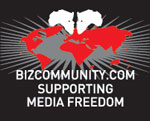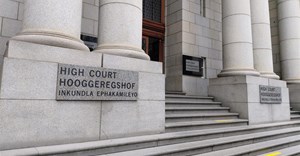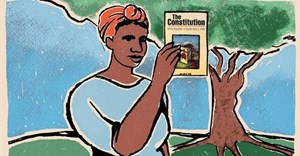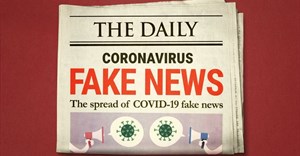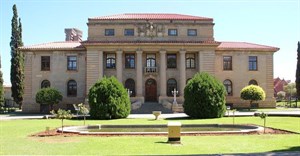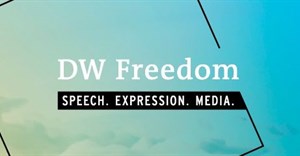Trending
Elections 2024
Jobs
- Paid Social Media Specialist Johannesburg
- Social Media Manager Cape Town
- Senior Account Lead - SHAREit Johannesburg
- Senior E-commerce Manager Cape Town
- Copywriter and Content Producer Cape Town
- Delivery Director Sandton
- Digital Media Campaign Manager / Buyer Durban
- Digital Marketer Cape Town
- Account Executive Cape Town
- Digital Manager Johannesburg
Auckland Park Declaration an "opening gambit"
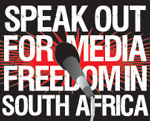
Appeal to the public
The declaration was published as either editorial or paid-for advertising space in all the Sunday papers and the Monday editions of dailies. It came at the end of a week in which the press stepped up its appeal to the public to oppose the government's attempts to curb media freedom - a week when Sunday Times investigative journalist Mzilikazi wa Afrika was detained without an arrest warrant on the absurdly spurious claim that he is somehow involved in "fraud" because he received a fax purporting to be the resignation of the Mpumalanga premier.
If you live in a cave and didn't see the Auckland Park Declaration, signed by 36 of the country's editors from all the major media houses, it says:
We, the title editors of South Africa's major publications and members of the South African National Editors' Forum, are deeply concerned about attempts to curtail freedom of expression and the free flow of information in our country. Free speech and access to information are the lifeblood of our democracy and we are at the very heart of the struggle for freedom. Human dignity is indivisible from freedom of speech. We vigorously oppose the restrictive clauses in the Protection of Information Bill and proposed Media Appeals Tribunal. We appeal to the South African Government and the ruling ANC to abide by the founding principles of our democracy, and to abandon these proposed measures. We commit ourselves to join hands with all South Africans who value their freedom to defend these basic rights which are enshrined in our constitution.
Patently open to abuse
Not only is the proposed state-funded media tribunal so patently open to abuse by the state but the Protection of Information Bill would give the state wide-ranging powers to classify pretty much any government information it likes and jail anyone who reveals the information - whistle blowers and journalists alike.
So where does this Auckland Park Declaration come from?
It was initiated by the Media24 editors, it seems, and they quickly got the support of others from around the country, such was the alarm over last week's jackboot treatment of Wa Afrika.
Tim du Plessis, the editor of Media24's Beeld newspaper, says the declaration was really an "opening gambit" by the title editors and that it was decided at the open meeting held by South African National Editors' Forum (SANEF) last week at Avusa's headquarters than an action committee be formed - on which Du Plessis sits - to take the battle forward. (Ironically, Wa Afrika was being pounced on by a minor phalanx of policemen outside Avusa's building in Johannesburg while the meeting was on the go.)
"We are... at the coal face"
"We just thought that we [the title editors] are the ones who are answerable to our readers and owners," Du Plessis told Bizcommunity.com this week. "We are the ones at the coal face having to make decisions day after day and we must make this statement. We said very clearly in the preamble that we are title editors but we are members of SANEF so it's done under the auspices of SANEF."
The first job of the action committee will be to build a coalition with other media, for example, radio and TV, the trade unions and civil society, says Du Plessis.
"The challenge for the editors is to get the public to understand that this is not about the right of the press to write about scandals and stuff like that. It's a fundamental free speech issue. My suggestion is if we build this coalition, we call it the 'Free Speech Coalition'. It's not about the media only. It is about the very fundamental right of individual South Africans - as individuals and as a collective - to freedom of speech.
"We [the media] write about corruption and ministers staying in five-star hotels for extended periods. That's what they want the public not to know, so if you're concerned about corruption, you should be concerned about what is going on here," says Du Plessis.
Pinned colours to the mast
Business Day editor's Peter Bruce had already pinned his colours to the mast earlier in the week when he wrote in his Monday column that he would not meet the ANC on these media-freedom issues:
"I just don't want to be a part of any meetings whose object is to make my country less of a democracy. If I go, and if other editors go, it will merely legitimise what the ANC wants to do anyway - they'll be able to say they 'consulted' the media. But not, at least, with me. This is not Vichy."
Quite right too. It's not Vichy. It's South Africa and, like the US, we have a constitution that guarantees freedom of speech. We may not have laws that compel everything an American president says or writes to be recorded for posterity (hence the big stink over Barack Obama's BlackBerry when he first came to office) or that force political parties to disclose financial donations to them. But we do already have laws that protect whistle blowers and give the public access to information.
Pure poppycock
Every now and again, someone in Government circles floats the idea that maybe we should find a new "African" way of journalism that is not adversarial to the state in the tradition of the British media - as if the critical role of the Fourth Estate as watchdog is somehow a colonial import we don't need. Well, that's just (in the parlance of our English masters) pure poppycock.
If you believe that, then you'll believe democracy is a colonial trend we could do without. America, for instance, didn't invent the idea of a constitution - it borrowed and refined the Magna Carta: the 1215 declaration that limited the power of the English king and guaranteed certain rights of Englishmen. Basically, both systems put the law of the land above any other authority.
The new South Africa borrowed and refined the idea of the American constitution - and we should be very proud of it; not seek to limit or ignore it. It doesn't matter where good ideas come from. It's what you do with them that counts.
For more:
- Sunday Times editor Ray Hartley's open letter to President Jacob Zuma
- Japhet Ncube in City Press: "How freedom dies"
- "Secrecy law threatens SA's democratic credentials" by Fiona Forde in Business Day
- "Media freedom: the case for a united front" by Angelo Coppola on Bizcommunity
- ANC.org.za: discussion paper on media transformation, ownership and diversity
- Bizcommunity special section: special focus on media freedom
- Bizcommunity Twitterfall: #ZAmediafreedom
- Google News Search: Protection of Information Bill media appeals tribunal
- Twitter Search: #ZAmediafreedom
- Google Blog Search: Protection of Information Bill media appeals tribunal
